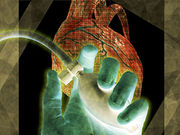Antihypertensive medication regimens should be made as easy-to-follow as possible
WEDNESDAY, Sept. 14, 2016 (HealthDay News) — Nearly five million Medicare prescription drug enrollees aren’t taking their antihypertensive medication as directed, according to research published in the Sept. 13 early-release issue of the U.S. Centers for Disease Control and Prevention’s Morbidity and Mortality Weekly Report.
An analysis of 18.5 million Medicare Part D enrollees in 2014 found that 26.3 percent either skipped doses of their antihypertensive medication or stopped taking the drugs entirely, according to the CDC. “That’s particularly troubling, because other research indicates that up to 25 percent of new prescriptions for blood pressure medicine are never even filled in the first place,” Tom Frieden, M.D., M.P.H., director of the CDC, said during a press briefing. “Of those prescribed those regimens, maybe a quarter don’t even start them, and now we’re finding that another quarter don’t continue them.”
The percentage of drug non-adherence varies among racial and ethnic groups — more than one-third of blacks (37.5 percent), Hispanics (33.8 percent), and American-Indians (38.8 percent) versus roughly one quarter of whites (24.3 percent) or Asian/Pacific Islanders (26.3 percent). Patients living in the Southern United States had the highest rate of non-adherence in the nation, Frieden noted. Medication class also made a difference, with diuretics abandoned more often than other drugs. Lower-income individuals also were less likely to take their antihypertensive medication as directed. Of patients with a low-income subsidy, 32.1 percent did not adhere to their regimen, compared with one-quarter (25.4 percent) of patients with no subsidy.
Frieden called on doctors and health systems to help encourage adherence by making antihypertensive medication regimens as easy-to-follow as possible, and checking in with patients to see if they’re taking their medication as directed.
Full Text
Copyright © 2016 HealthDay. All rights reserved.








